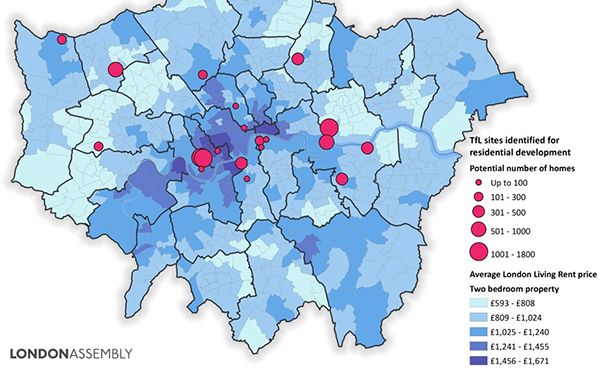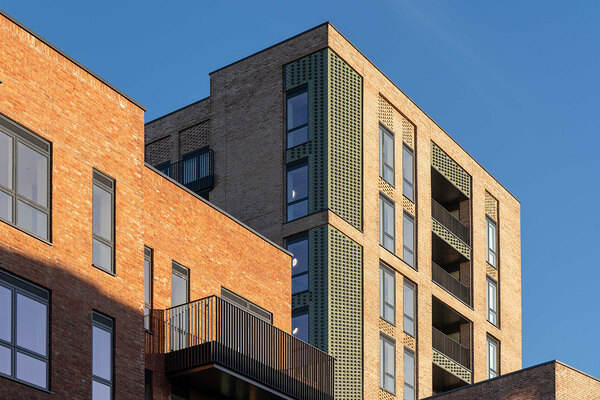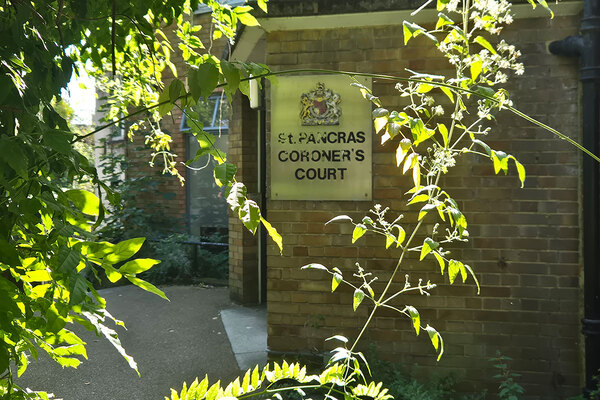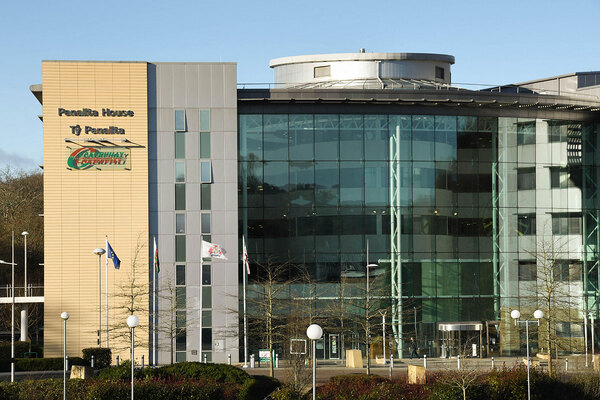You are viewing 1 of your 1 free articles

Maximising use of Transport for London land
Andrew Boff suggests changes are needed to ensure Sadiq Khan hits his target of 10,000 homes on Transport for London land by 2020

London’s mayor Sadiq Khan was elected on a ticket of tackling the housing crisis.
He would build thousands more “genuinely affordable” homes for Londoners on public land – notably land owned by Transport for London (TfL), whose board he now chairs.
The mayor wants to see more affordable homes built and his manifesto promised a strategic target of 50% affordable on all new developments.
This is many more than London has achieved in the past (as well as being way above the 35% benchmark in his recent supplementary planning guidance).
The mayor has also set a target for 10,000 homes to have started construction on TfL land by 2020.
The London Assembly Housing Committee has just completed an investigation looking at the trade-offs which must be made in the use of TfL’s land for homes.
Our investigation found that, on the current rate of progress, less than half of the promised 10,000 new homes will be started by 2020.
So far, three TfL sites have been offered to its pre-qualified development panel.
We have crunched the numbers currently available and examined the location of sites.
Most of the sites TfL is currently working on, including two of the three biggest sites, are in inner London – where land values are very high.
Mapping the sites against the proposed rent levels for the mayor’s London Living Rent homes (an intermediate rent-to-buy product on a time-limited tenancy) shows that many are located in more expensive areas (the darker shades in the map below).
So subsidising affordable homes on these sites will be expensive in terms of value foregone – value which will not be ploughed back into upgrading the transport system.
Meanwhile, the rents charged look likely to be relatively high.
Even with the mayor’s subsidy, London Living Rent on many early sites will be relatively high.
“Londoners are relying on TfL and the mayor to deliver new homes as quickly as they can.”
Our report also identifies ways in which the mayor and TfL should work with their partners and the boroughs to maximise the number of affordable homes which can be built, while keeping costs to a minimum.
For example:
- One vital contribution the mayor can make is to use his soft power to help cluster development opportunities to create ‘land marriage value’. Too often small plots of land, both in private and public ownership, are disposed of in isolation. But where landowners can reach agreement to group adjacent sites together, the development opportunity created can be far greater.
- Development objectives for each site need to be clear – for example, is it affordable housing, improved public realm, or station upgrades? Developers regularly note the tendency of public landowners to move the goalposts as schemes progress, resulting in delays and disagreements which in turn ratchet down the public value the site ultimately delivers. TfL and the mayor need to agree upfront what they want, and keep any revisions to a minimum, if they are to get Londoners the best deal from TfL’s land.
- Developing on and around operational rail facilities is complicated. There are, for sound reasons, detailed procedures to be followed, to minimise both the risks to contractors and facilities, and disruption to services. But TfL needs to make sure that procedures are proportionate, and its engineering and operational staff must work closely with its new property development team, to resolve the frictions which will arise in competing parts of its business. Otherwise delays could ensue, with attendant costs.
Londoners are relying on TfL and the mayor to deliver new homes as quickly as they can. TfL is setting about this task with energy, but we need it to do more.
I trust the recommendations the housing committee is making will help in shaping TfL’s thinking, and that of the mayor, on how to deliver at pace while still making the very best use of London’s assets.
Andrew Boff is a Conservative London Assembly member and former chair of the assembly’s housing committee
Read the full report and recommendations
Related stories









